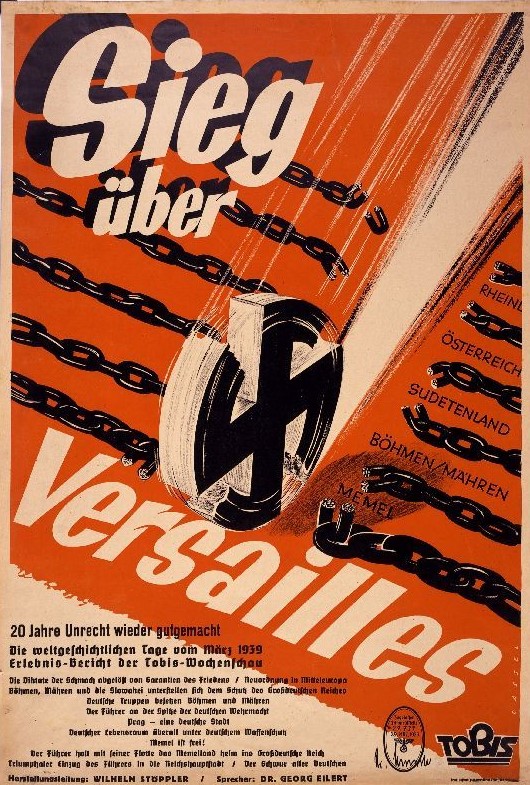Source

Source: Film poster, 1939. Designer: Herbert Dassel, 1939. Wolfsonian-Florida International University, https://digital.wolfsonian.org/WOLF027486
The belief that Germany had been hard done by the Entente’s overly harsh punishment after the First World War remained strong in the minds of Germans throughout the interwar period. Propagandists did not necessarily need to push the public to resent the treaty’s terms, but they eagerly used the cultural memory of the treaty to unite Germans in a rejection of both its restrictions and any other limits placed on German ambition. This poster from 1939 advertised a documentary film about Germany’s foreign policy victories since 1933 and claimed that “Twenty years of injustice” had been overcome by Hitler’s government, which undid the Versailles peace. The Swastika steamrolls through the chains put in place by the international treaty, making possible the end of the demilitarized Rhineland, the “Anschluss” of Austria, the Sudetenland, Bohemia, and so on. Imagery and messaging like this offered the evidence for claims that Hitler was a genius when it came to international affairs, which made it possible for many Germans to believe he would lead them to victory in the war as well.

Source: Film poster, 1939. Designer: Herbert Dassel, 1939. Wolfsonian-Florida International University, https://digital.wolfsonian.org/WOLF027486